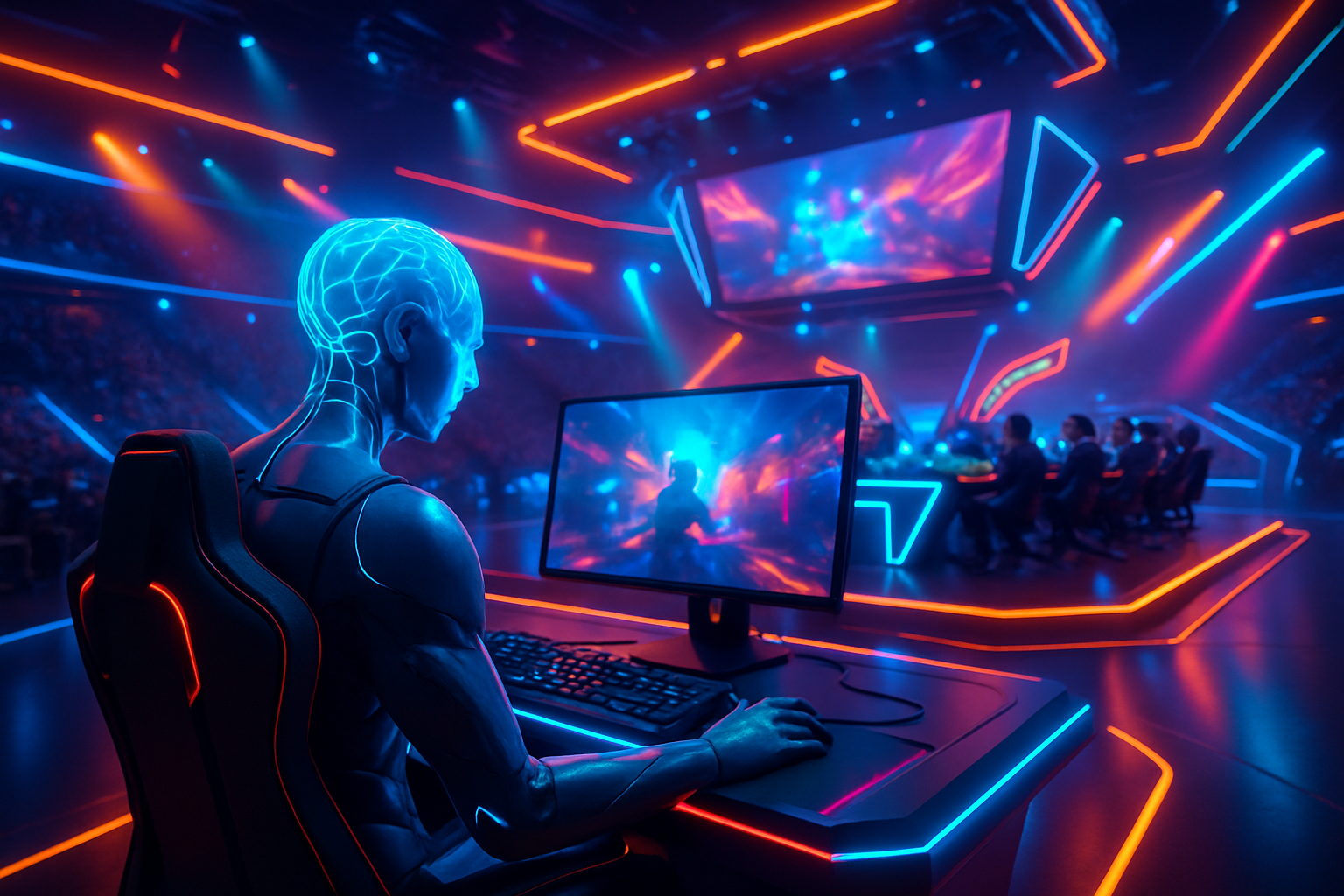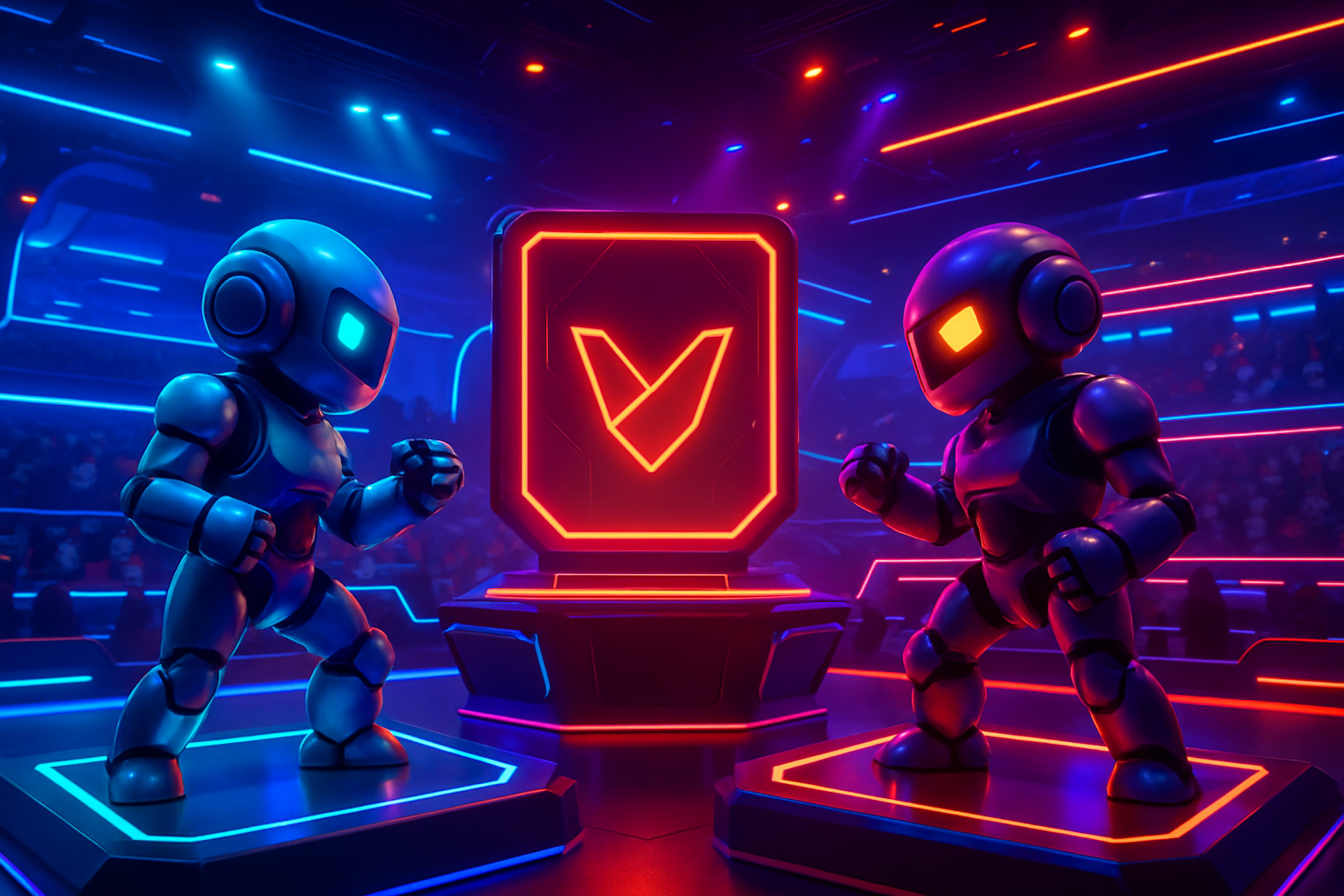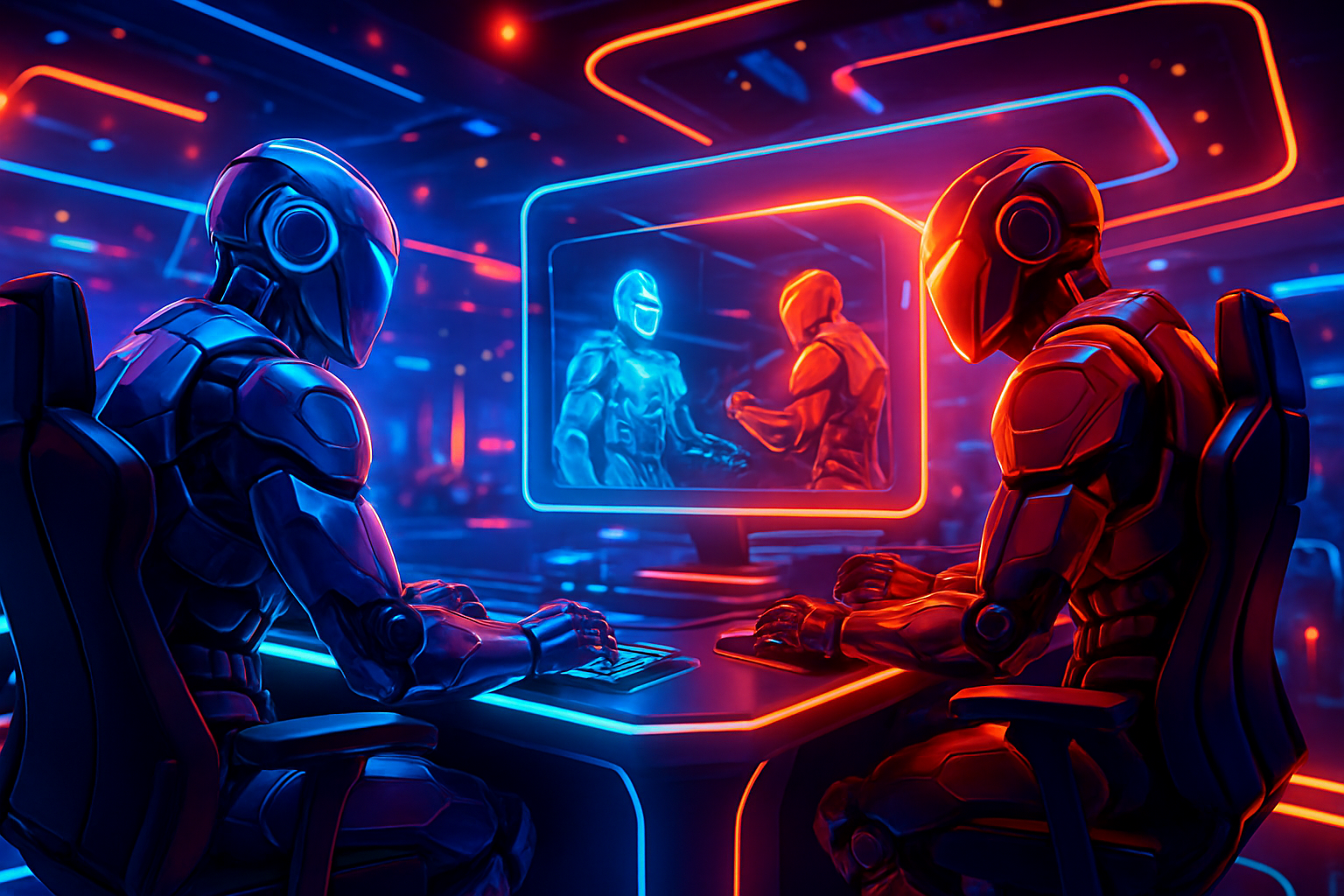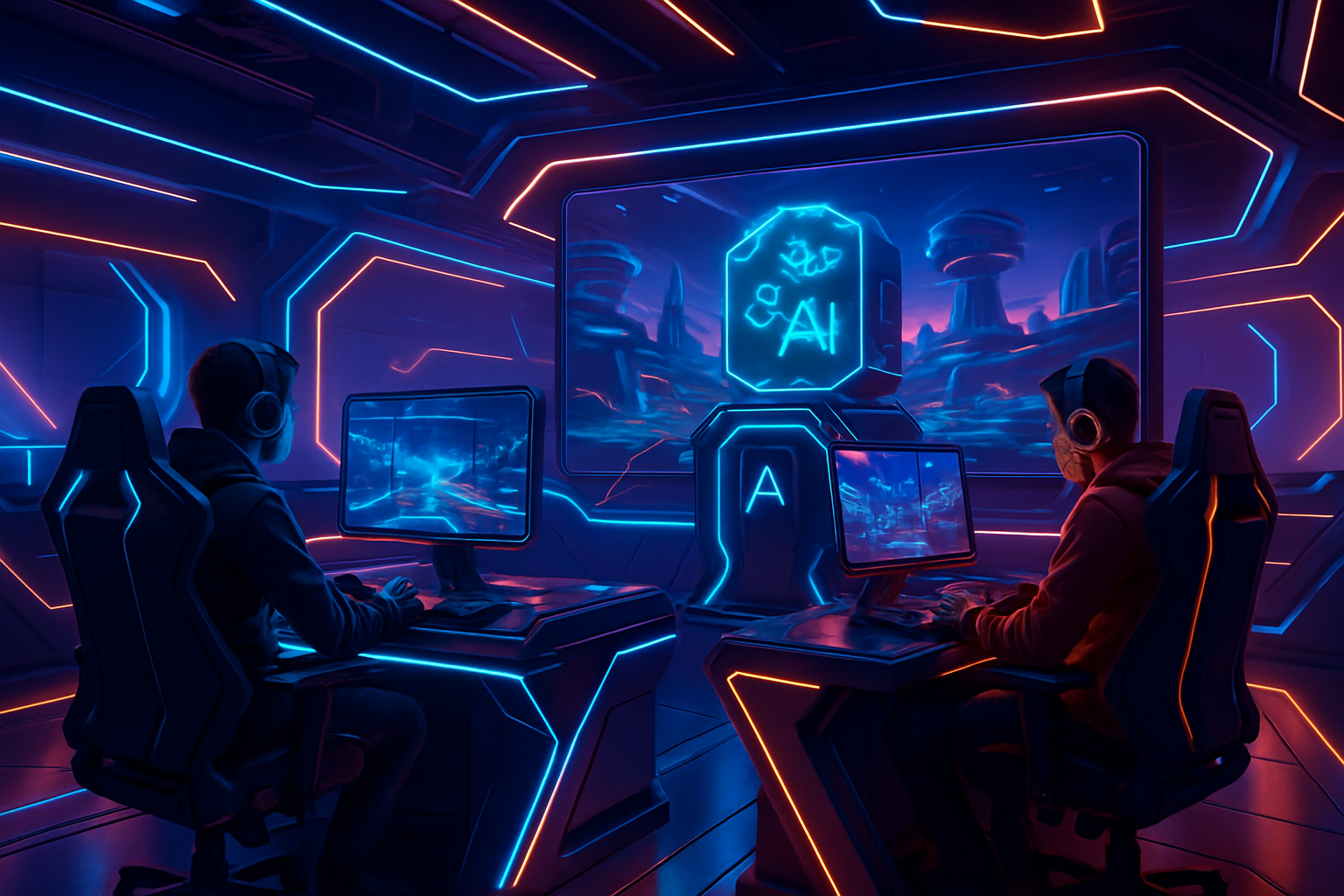
Competitive gaming arenas are no longer just about raw skill or lightning-fast reflexes. The real battleground is shifting to the code that powers the arena itself. AI-generated game engines are rewriting the rules for both developers and players, introducing a wave of innovation that’s as thrilling as it is disruptive. From the rapid-fire pace of AI-vs-AI tournaments to the real-time creation of entire game worlds, this technology is fundamentally altering how we design, play, and even think about esports.
AI Game Engines: The New Backbone of Competitive Arenas
The surge in AI-powered engines marks a strategic turning point for competitive gaming. Traditional engines like Unreal and Unity are being challenged by platforms such as Mirage AI Engine and Google’s GameNGen, which use neural models to generate playable games without conventional coding. This shift doesn’t just improve efficiency – it unlocks creative potential and scalability previously out of reach for most studios.

According to a recent Google Cloud survey, an impressive 87% of game developers now incorporate AI agents into their development workflows, with 44% leveraging AI specifically for code generation and scripting (source). This mass adoption isn’t just a trend – it’s a tectonic shift that allows studios to iterate faster, reduce bugs, and bring complex competitive titles to market with unprecedented speed.
Personalization and Dynamic Gameplay: Raising the Stakes for Players
The true magic happens when AI-generated engines adapt games in real time based on player behavior. Imagine stepping into an arena where every opponent’s strategy evolves uniquely in response to your playstyle or where map layouts morph between matches to keep you guessing. This isn’t science fiction – it’s already unfolding in platforms like Kaggle Game Arena, where leading models such as Gemini 2.5 Pro and Claude Opus 4 battle for supremacy (source).
This level of adaptive gameplay not only increases engagement but also raises the bar for strategic depth in competitive arenas. In fact, dynamic content generation ensures that no two matches are ever truly alike – forcing players and AI competitors alike to constantly refine their tactics.
Top 5 Ways AI Game Engines Are Transforming Esports
-

1. Accelerating Game Development with Automation — AI-generated game engines like Google GameNGen and Mirage AI automate repetitive development tasks, such as code generation and asset creation. This boosts efficiency and allows developers to focus on innovation, resulting in faster releases of competitive titles.
-
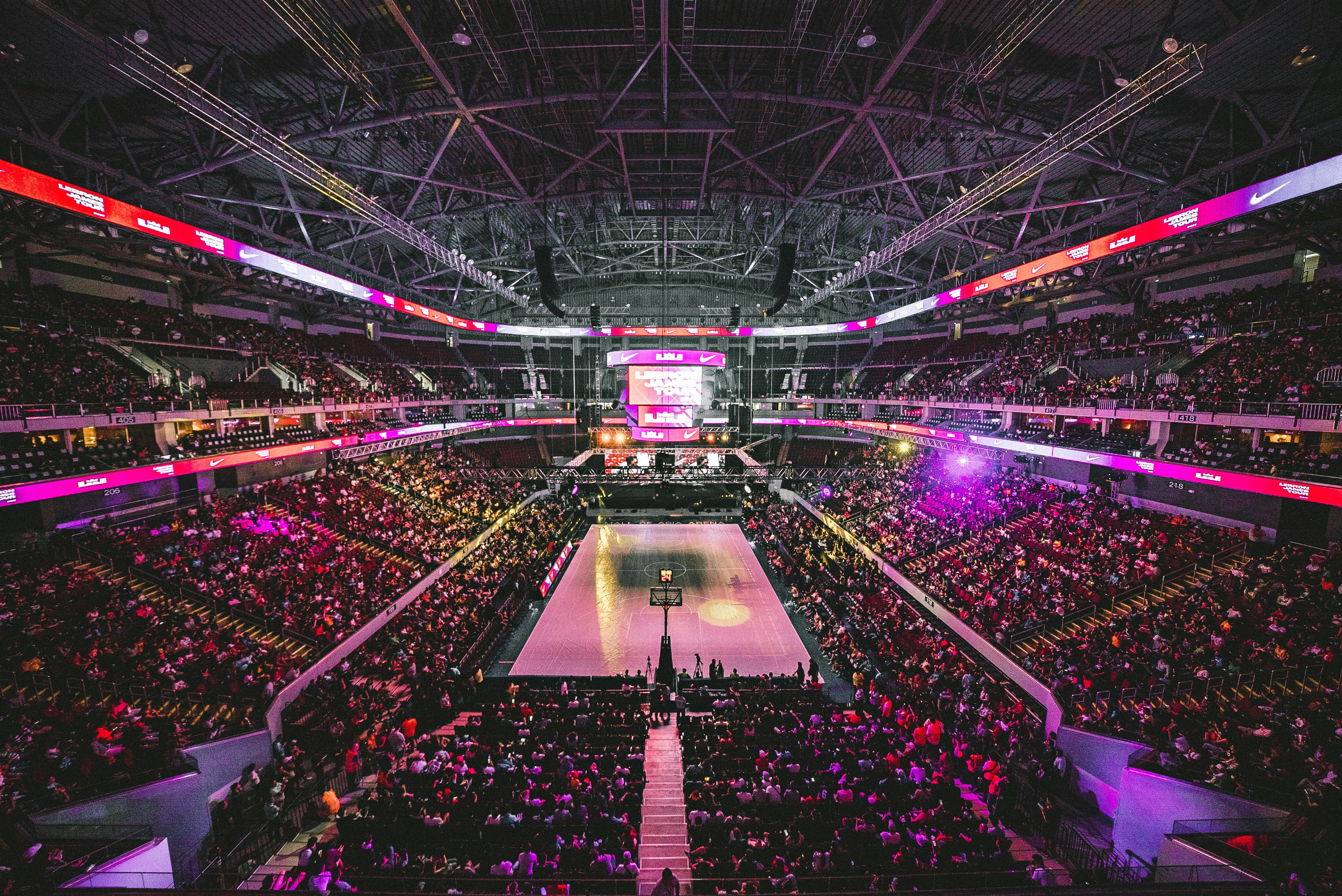
2. Personalizing Player Experiences in Real Time — Modern AI-powered engines analyze player behavior to dynamically adjust difficulty, recommend content, and adapt narratives. This personalization, seen in platforms like Kaggle Game Arena, keeps players engaged and ensures every match feels unique.
-

3. Creating Dynamic, Evolving Game Environments — AI-driven engines enable procedurally generated maps and adaptive arenas that evolve during gameplay. This ensures no two matches are the same, challenging competitors to continually adapt their strategies.
-

4. Benchmarking AI Performance in Competitive Settings — Platforms like Kaggle Game Arena publicly evaluate and benchmark top AI models (e.g., Gemini 2.5 Pro, Claude Opus 4, Grok 4) in strategic games, pushing the boundaries of AI-driven competition and setting new standards for esports performance.
-
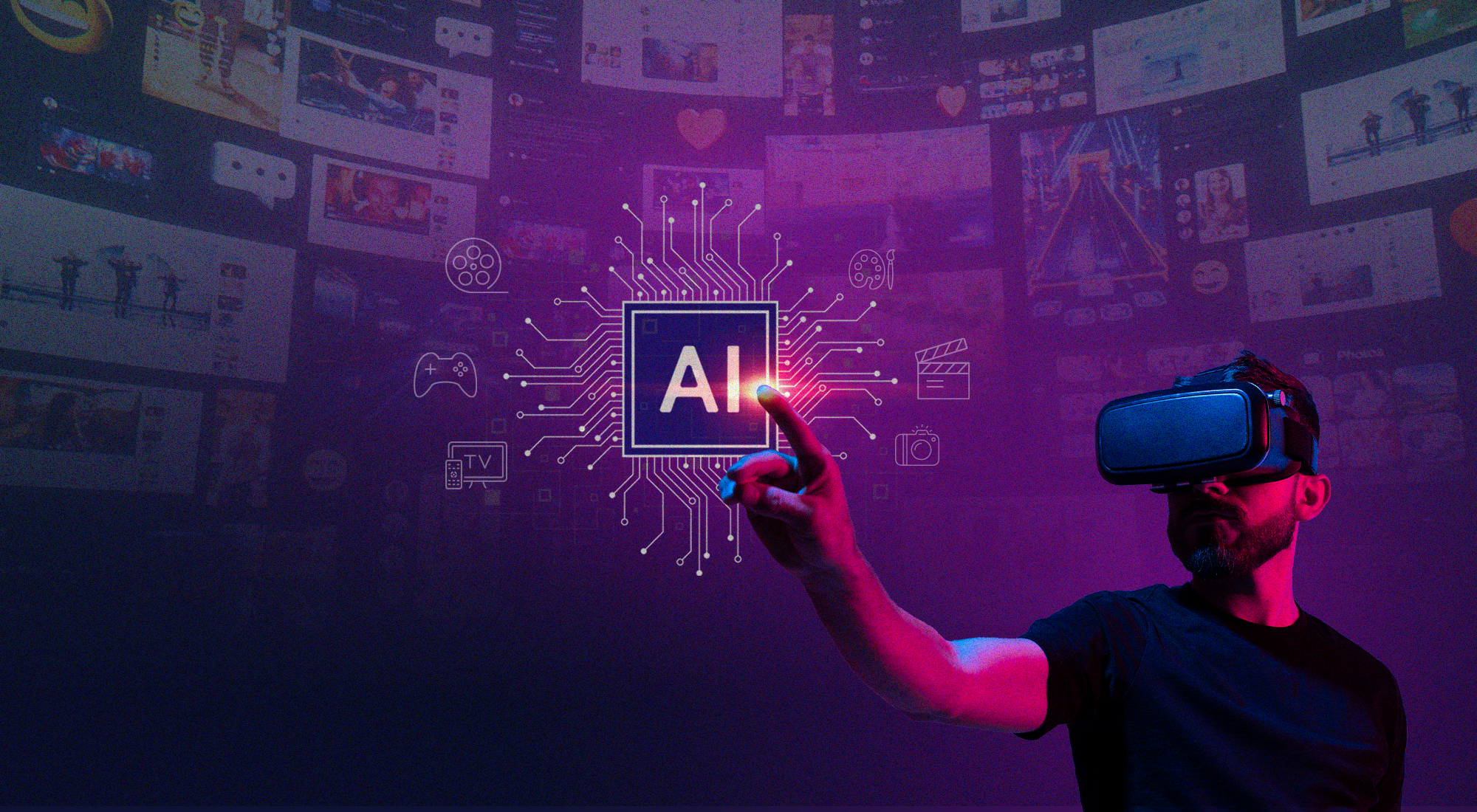
5. Addressing New Ethical and Industry Challenges — The rise of AI-generated engines brings challenges such as concerns over data ownership, originality, and job displacement. A recent Google Cloud survey found 63% of developers are uneasy about intellectual property in AI-generated content, highlighting the need for robust ethical frameworks in esports.
The Rise of Real-Time Game Creation and Procedural Mastery
The impact goes deeper than personalization alone. With neural-powered tools like Mirage and Gambo AI, developers can now build worlds on-the-fly using natural language commands or high-level prompts. This procedural mastery means that environments can evolve within seconds during live tournaments, adding an extra layer of unpredictability that tests even the most seasoned pros (source).
The result? Competitive gaming arenas become living ecosystems where adaptability trumps memorization – and every tournament becomes a proving ground not just for players but also for the algorithms driving the action.
For tournament organizers and spectators, this evolution is a game-changer. Real-time creation powered by AI-generated game engines brings a new level of spectacle and unpredictability, making each event a unique narrative rather than a repeat of familiar maps or scenarios. Platforms like Kaggle Game Arena are already leveraging these advancements to pit top-tier models against one another, offering an ever-evolving benchmark for AI gaming technology and strategy (source).
Challenges on the Cutting Edge: Quality, Ethics, and Innovation
However, the rapid adoption of AI-driven engines is not without its growing pains. As barriers to entry fall, concerns about the originality and quality of AI-generated content are surfacing. The ease with which new arenas and games can be spun up risks flooding the market with derivative or poorly balanced experiences if not carefully curated. Moreover, as highlighted in recent developer surveys, 63% express discomfort around data ownership and intellectual property when it comes to content produced by generative models (source).
The conversation around ethics is only intensifying as AI’s role grows. Questions about transparency in matchmaking algorithms, potential bias in procedural content generation, and the impact on creative jobs demand attention from both the industry and its passionate community.
Strategic Opportunities for Players and Developers
For those willing to embrace change, the opportunities are immense. Competitive gamers now face environments that reward adaptability over rote memorization. This means practicing for an arena is less about learning every corner of a static map and more about developing flexible strategies that can handle shifting landscapes.
Developers gain access to toolkits that allow rapid prototyping of complex mechanics or entirely new genres, without being bottlenecked by traditional coding limitations. By leveraging engines like Mirage AI or Gambo AI, small studios can punch above their weight class in esports innovation.
The strategic edge now lies in understanding how these engines think. Players who study procedural logic or train alongside adaptive bots will have an advantage as arenas become less predictable but far more rewarding.
What’s Next for Competitive Gaming Arenas?
The next wave of competitive gaming will be defined not just by who wins but by how arenas themselves evolve match after match, driven by neural networks learning from every play session. As real-time game creation becomes mainstream and platforms like Kaggle Game Arena continue to push boundaries, expect a surge in creative formats where both human ingenuity and algorithmic mastery share center stage.
Ultimately, AI-generated game engines are not just transforming competitive gaming, they’re democratizing it. With fewer technical hurdles and richer possibilities for both personalization and spectacle, the future belongs to those ready to innovate at the intersection of code, competition, and creativity.
